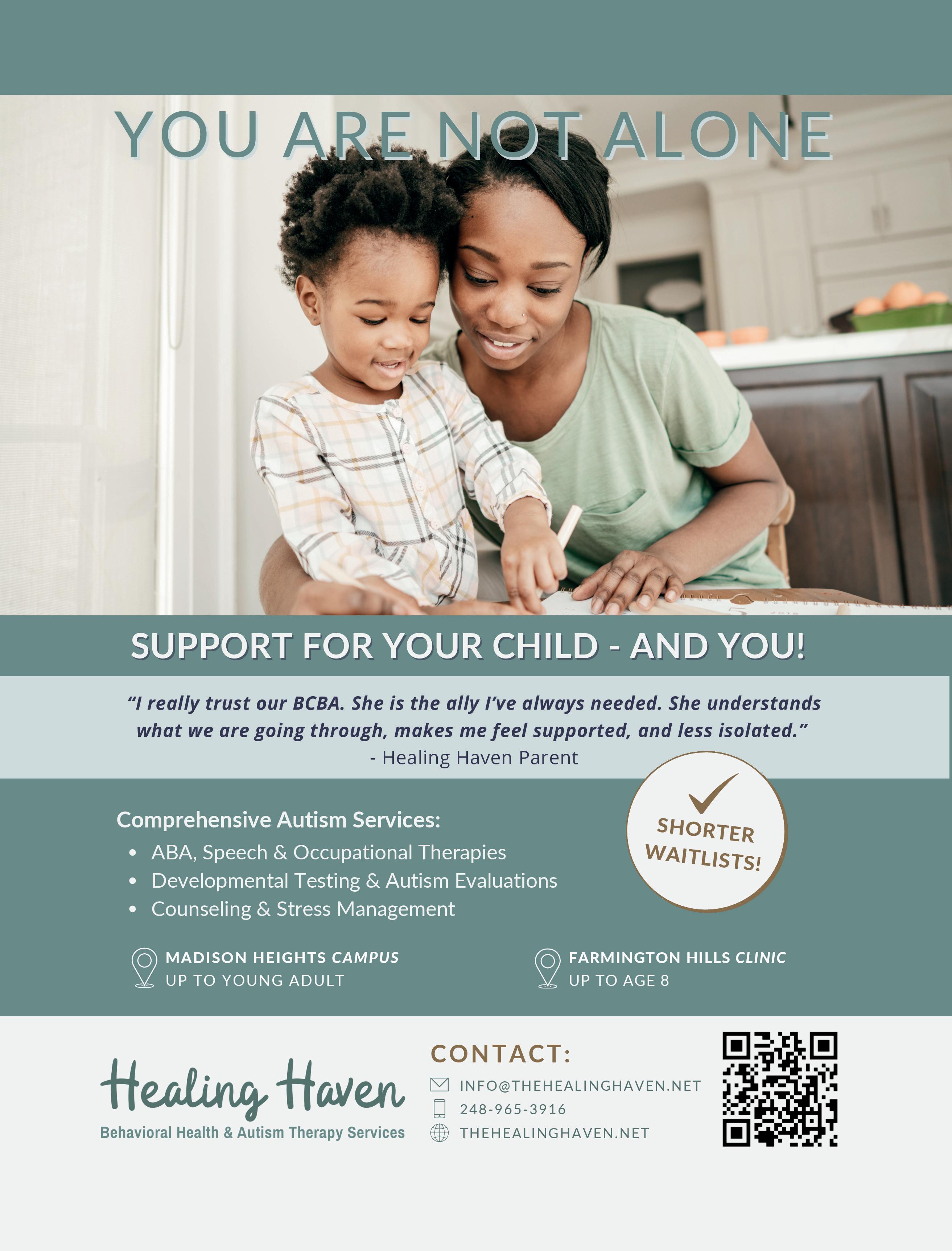
3 minute read
Navigating Routine Health Appointments A GUIDE FOR PARENTS
BY EMILY CRANE, HEALING HAVEN
Routine health appointments are an essential part of maintaining your child’s overall well-being, but they can often be a source of anxiety for children with autism or other disabilities, and their families. Whether it’s a visit to the pediatrician, dentist, or specialist, the unfamiliar environment, people, and procedures can present unique challenges. Additionally, children with autism, Down syndrome or other disabilities often have more health appointments due to the prevalence of co-occurring health conditions.
However, with some preparation and strategies in place, these appointments can become smoother and less stressful for both you and your child.
Strategies for Success
1. Preparation is Key Preparation can make a significant difference in how your child handles a health appointment. A few strategies you could try to help your child prepare for an upcoming appointment are:
• Utilize visual schedules
• Create social stories where you explain what will take place
•Do a “mock visit”, where you bring your child to the clinic and familiarize them with the environment and people they will see prior to the real appointment.
2. Communicate with the Healthcare Provider
Effective communication with your child’s healthcare provider prior to the appointment can greatly enhance the experience.
• Inform the provider about your child’s diagnosis and any specific needs or triggers they might have.
• Request accommodations that might help your child feel more comfortable, such as a quieter room or extra time for the appointment.
• Share any existing care plans or strategies that work well for your child. This can include preferred communication methods, behavioral strategies, or sensory preferences.
3. Create a Comfort Plan
When preparing for an upcoming health appointment for your child, our Vice President of Clinical Operations, Jennifer Thomas, PhD, BCBA-D, LBA, urges parents to do their best to assess their child’s existing comfort level with the appointment given past experiences. This will help guide you in creating a comfort plan tailored to your child’s specific needs, ultimately making managing your child’s stress and anxiety during the appointment easier. A comfort plan may include:
• Bring your child’s favorite sensory items.
• Bring positive reinforcement tools.
• Allow for needed breaks during the appointment.
4. Post-Appointment Care
The experience doesn’t end when you leave the office – communication with your child’s healthcare providers and planning should continue after the appointment. Some ideas on how to support your child after their healthcare appointment include:

• Debrief with your child (if possible) regarding their feelings.
• Help your child transition back to their normal routine.
• Evaluate what went well versus what didn’t - and then adjust your approach accordingly for future appointments.
More to Consider
We hope these steps help you in navigating and managing future health appointments for your child. In addition, ABA Therapy is a great resource for helping children with autism not only “get through” health appointments but thrive during them by practicing specific skills in-clinic that align with their needs.
Remember, each child is unique, so it’s important to tailor these strategies to fit your child’s specific needs. With patience and persistence, routine health appointments can become a more positive and manageable part of your child’s care journey.
To learn more about the comprehensive autism services at Healing Haven, visit thehealinghaven.net.












